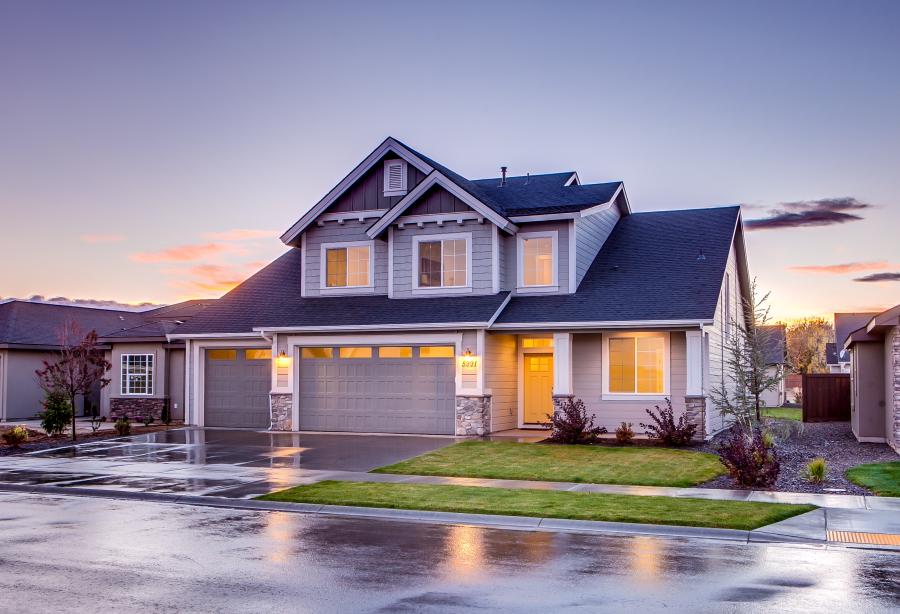A generation locked out of the housing market, a property bubble so inflated it is about to burst.
Cue the doomsday music and fretting over escalating home values.
Don’t get me wrong, saving for a deposit is an difficult exercise, and it is true that Australian property values have increased significantly over the past 15 years, although it is worth noting that interest rates have fallen dramatically meaning the cost of owning a house as a proportion of disposable income hasn’t risen substantially over time.
In my experience, there are those who dismiss something as hard without trying and there are those who work out a way to succeed.
If you have a good job and aspire to climb the property ladder, then you can save for a deposit.
It’s as simple as that.
What stops most people in their tracks is a combination of lifestyle choices and negative psychology.
Let’s take a look at some of the main barriers:

1. YOU’VE NEVER BEEN TAUGHT TO SAVE
Think back to the spending and saving habits passed down from your parents.
The lucky among us will have been taught the importance of budgeting, and of devising a savings plan around that budget, but many more will have not.
Research of more than 1000 Australians commissioned by finance comparison site finder.com.au found that two in three didn’t review their financial goals often enough, and only one in three checked their progress each month.
More than two-thirds took stock of their financial goals twice a year or less, and 32 percent said they didn’t use any particular tools to track their progress.
Saving for a deposit means having the skills and tools to amass tens of thousands of dollars and not touch it over a long period of time.
If you don’t have much practice sticking to a budget, then saving for a deposit will seem like too much of a hill to climb.
2. YOU WANT THE DREAM HOME NOW
There is nothing wrong with aspiring to that three-bedroom Californian bungalow in the blue-chip suburb that is within a few kilometres of the CBD.
These are some of the best properties that money can buy.
The trouble is: fully renovated dream homes are in hot demand and are likely to be out of your price range.
Trying to save a deposit for the dream home will leave you feeling defeated, and it is best to focus your efforts on established properties (as opposed to off the plan) in good areas that may not tick all of your boxes but will give you healthy capital growth.
The deposit will be more achievable at this level, and you will be able to save enough money to enter the property market.
Then you can focus on working your way up the ladder to that dream home.

3. YOU DINE LIKE A KING
Buying a home is going to involve a measure of sacrifice, whether that be cutting back on expensive trips or meals out.
Take a quick mental audit of your monthly spend.
Are you forever buying your lunch rather than bringing it in to work?
Do you drop money on expensive technology, dinners at the hottest restaurants in town, weekends away?
Your five-star lifestyle could be holding you back.
While it is important to enjoy a few luxuries in life, you need to be brutally honest about where you could be cutting back.
4. THERE IS NO CLEAR GOAL
Saving for a deposit is a bit like committing to a workout plan, but over a much longer period.
If you turn up to the gym and go through the motions without any clear idea of what you would like to achieve, such as losing 10kg or running 5km, then the early enthusiasm will eventually wane.
It is the same with a house deposit.
You will start off enthusiastically enough, diligently sticking to your savings plan, but three, maybe six, months in and without a clear focus on the goal you will struggle to maintain the commitment.
The best way to keep your eye on the prize is to find out what motivates you.
A lot of motivational speakers recommend the use of “vision boards” in order to stay on the path to success.
Maybe, for you, it’s cutting out pictures of the home you want to eventually own and sticking them on the board.
Perhaps, it’s attending auctions and reading property magazines and blogs, such as this one, to remind yourself what you are saving for in the first place.
Whatever works.

5. YOUR FRIENDS ARE RENTERS
OK, so hear me out here.
Our friends — and the social circles we move in —have an impact on what we aspire to.
If you are in a social circle where everyone else has put a foot on the property ladder then that could be a strong motivating factor for you to do the same.
There is nothing like seeing other people do what you aspire to do to make a dream seem more reachable and realistic.
A 2013 study published in Psychological Science reports that when people are running low on self-control, they often seek out self-disciplined people to boost their willpower.
I am not suggesting that you choose your friends based on whether they own property or not, but that you seek out mentors or advice from people who do.
Where possible, surround yourself with people who have successfully saved for a deposit and ask them for tips.

6. YOU DON’T EARN ENOUGH YET
Before you start putting money away for a deposit, you need to work out whether you earn enough money.
You can always rein in your spending habits to help you save money, but if your salary is below average to begin with you will struggle to put away enough money to make a genuine dent in the savings account.
Start by checking out a few properties and take note of what they sell for (not what they are listed for).
Work out how much you would need to save in order to accrue a 20 per cent deposit by using a mortgage calculator.
Interest rates are at historic lows, but be sure to factor in a buffer zone of a two per cent rates rises in the event they go up.
Now: be realistic about what you earn and how much of your wage you can put away each week.
Are you planning on starting a family soon?
Be sure to factor those costs in, too.
If at the end of the day you simply aren’t earning enough, then you need to face this fact.
But don’t let that deter you either: your wage is likely to increase as you work your way up the career ladder, or you may be able to find a higher-paying job that brings your dream on home ownership within reach.






